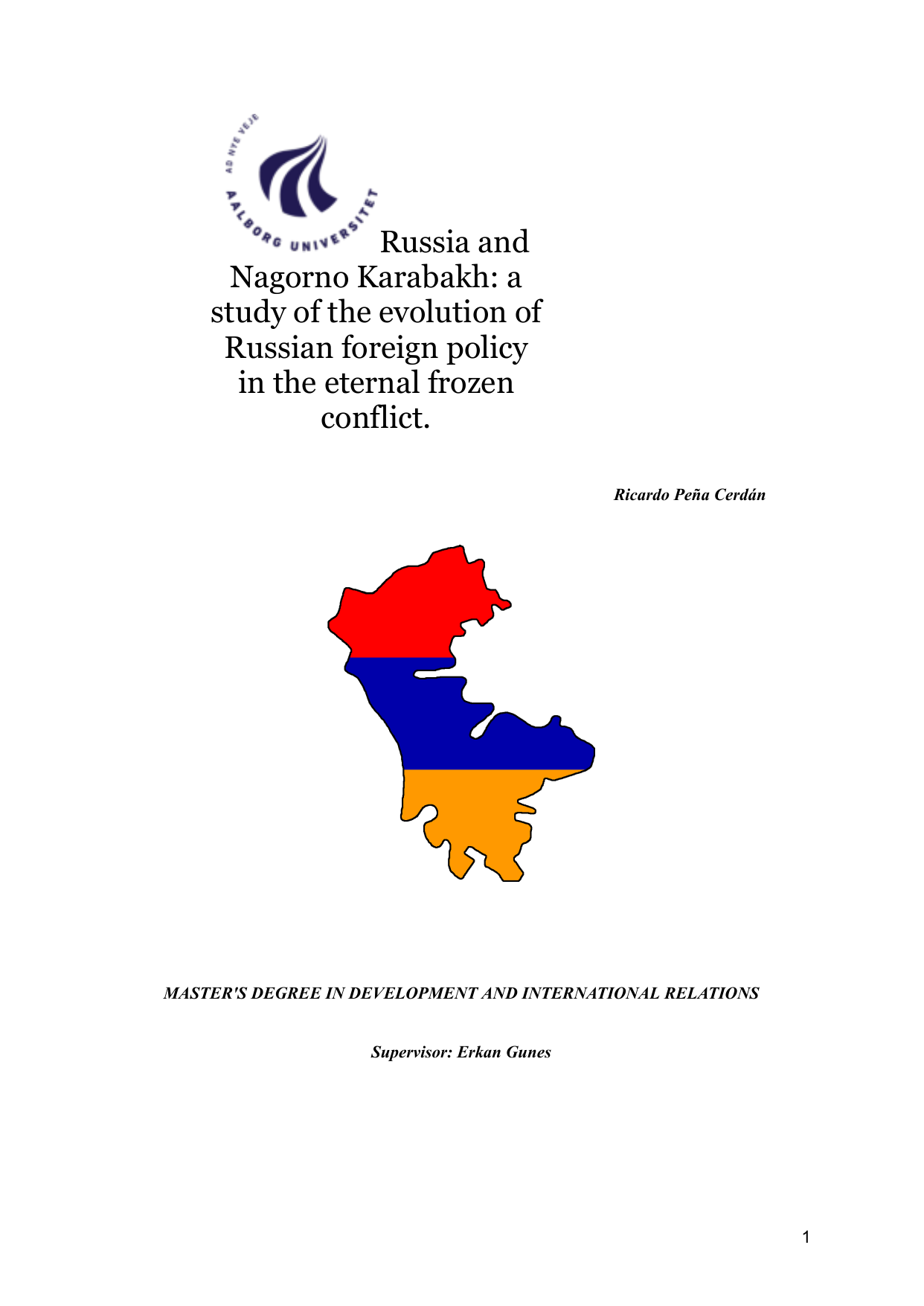
Russia and Nagorno Karabakh: a study of the evolution of Russian foreign policy in the eternal frozen conflict
Author
Term
4. semester
Education
Publication year
2024
Submitted on
2024-02-01
Pages
35
Abstract
This project is based on the exploration of a question that arises from observing the evolution of ethnic conflicts resulting from the end of the Soviet Union. The beginning of the Russian state as we know it today had to face a new way of relating to the new nations that for seven decades remained as Soviet republics subjugated to Moscow's decisions. Within this context, the Caucasus represented a particularly problematic region for Russian interests due to the presence of powerful regional players such as Turkey and Iran, a closer proximity to the West as well as several ethnic and nationalist conflicts that were frozen, although not solved, with the arrival of the Bolshevik forces. Some of these outbreaks involved the Islamic communities of Dagestan, the Russian-speaking regions of Abkhazia and Ossetia in present-day Georgia, but the major flashpoint was always the struggle between Armenians and Azeris for control of the Nagorno-Karabakh region. This dormant war was one of the first signs of the end of the USSR and has remained for 30 years a problem with no apparent solution for the Russian area of influence. Therefore, the research question that has shaped this study is how has the Russian Federation's foreign policy towards the Nagorno-Karabakh conflict changed and for what reasons?This question, of course, will explore the evolution of the three countries involved, Russia, Armenia and Azerbaijan and how they relate to each other, focusing on Russian foreign policy and its interventions on the Nagorno Karabakh conflict within different paths.
Keywords
Documents
